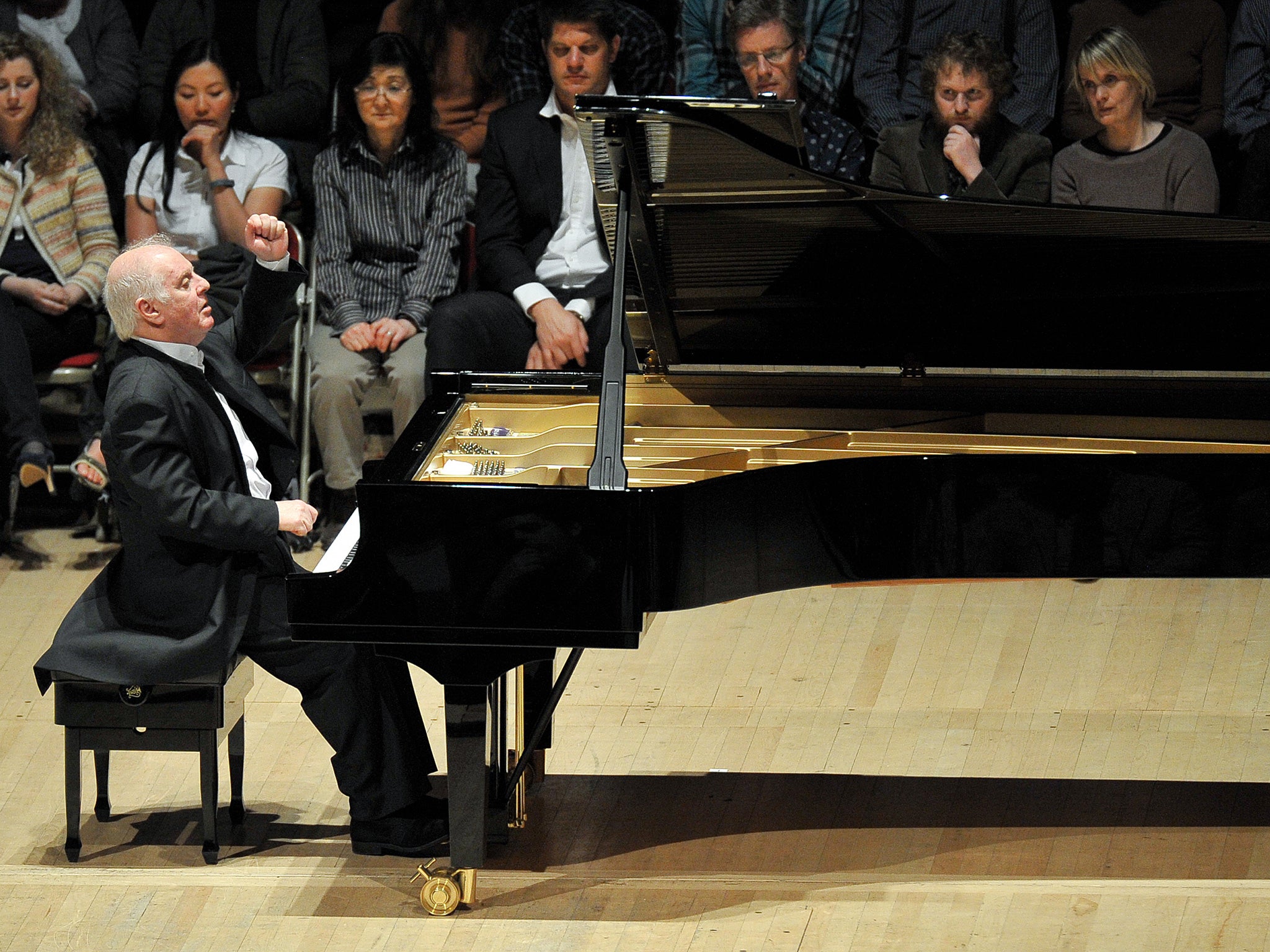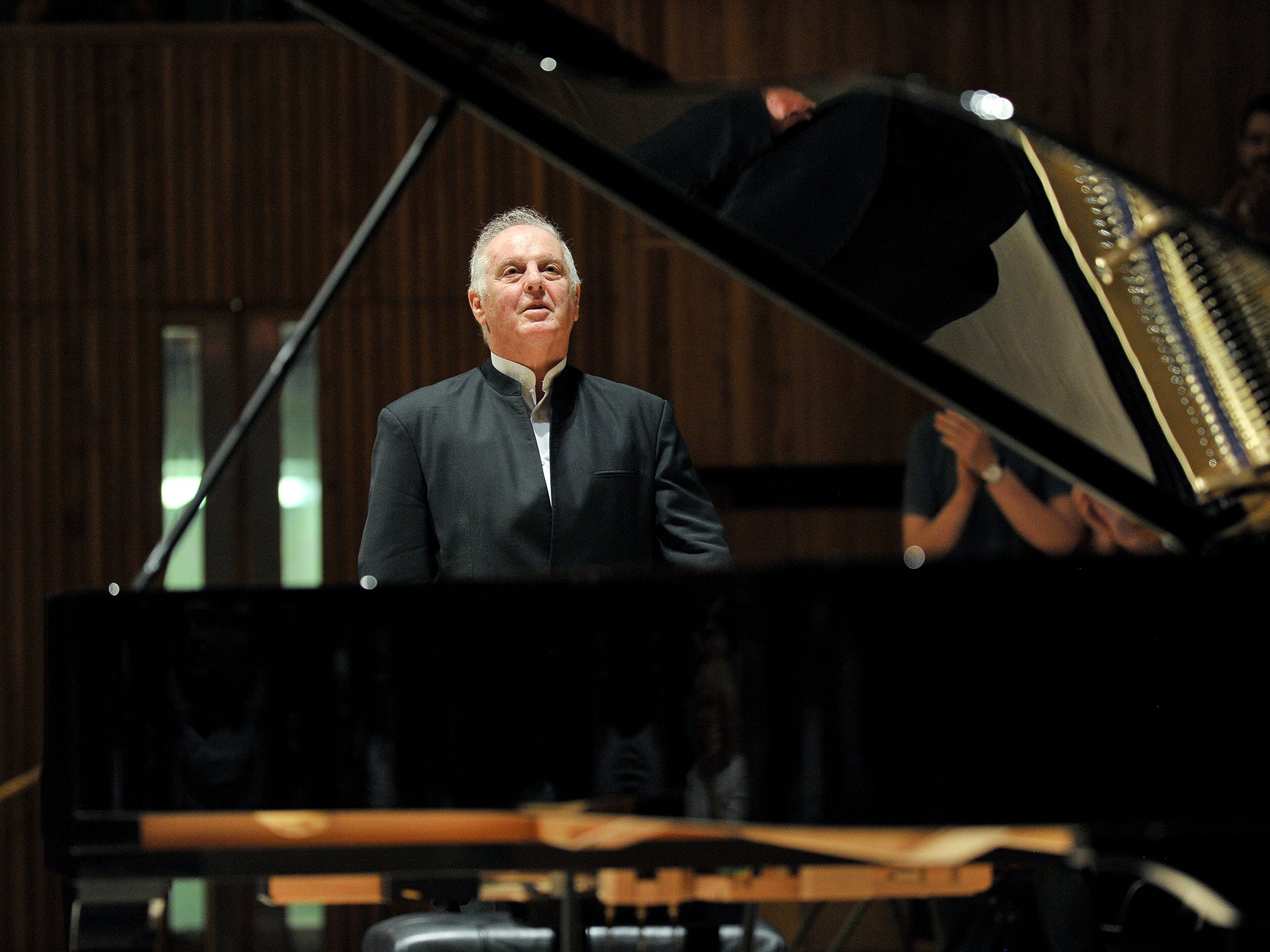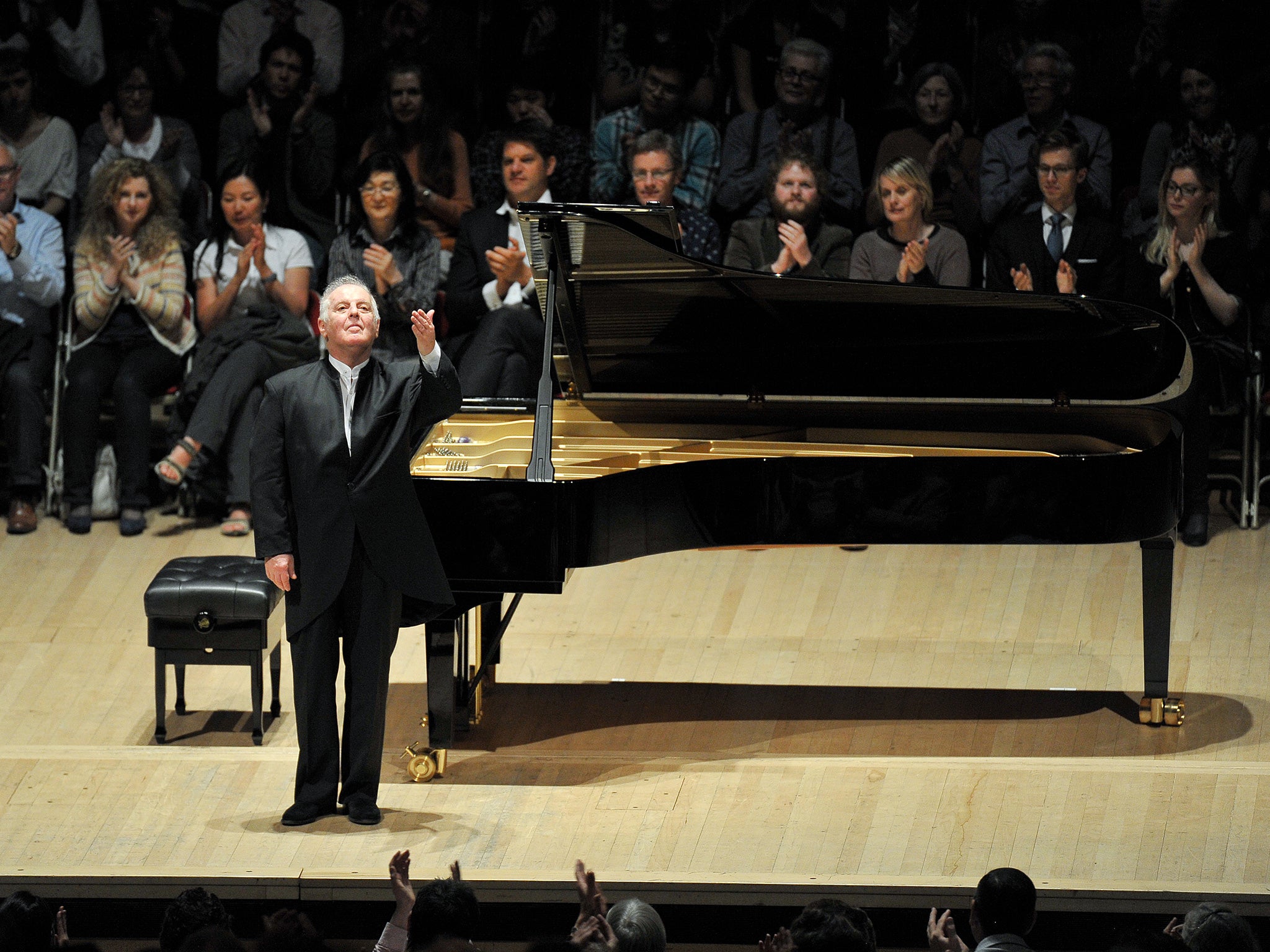Daniel Barenboim, Royal Festival Hall, review: The soloist's new piano is perfect for Schubert
People flock to Barenboim's recitals for his artistry and the history he embodies

Your support helps us to tell the story
From reproductive rights to climate change to Big Tech, The Independent is on the ground when the story is developing. Whether it's investigating the financials of Elon Musk's pro-Trump PAC or producing our latest documentary, 'The A Word', which shines a light on the American women fighting for reproductive rights, we know how important it is to parse out the facts from the messaging.
At such a critical moment in US history, we need reporters on the ground. Your donation allows us to keep sending journalists to speak to both sides of the story.
The Independent is trusted by Americans across the entire political spectrum. And unlike many other quality news outlets, we choose not to lock Americans out of our reporting and analysis with paywalls. We believe quality journalism should be available to everyone, paid for by those who can afford it.
Your support makes all the difference.When Daniel Barenboim gives a piano recital, the hall – no matter how big – is always sold out months in advance. This is because people flock to hear him not just for his artistry, but for the history he embodies, as a fearless preacher of tolerance in one of the most intolerant regions of the world. But the devotees cramming even the stage of the Royal Festival Hall were there for an additional reason: he was going to deliver his Schubert sonata cycle on a piano no-one in London had heard before, the so-called Barenboim Steinway.
This piano had an interesting genesis. He had chanced to play a piano in Siena which had belonged to Franz Liszt, and was entranced by the transparency of its sound. But it was built very differently from the way a modern grand is built: with the latter, the strings cross over each other, giving a sound which is both richer and also more homogenised from top to bottom of the register.
Barenboim decided to commission the creation of a new piano which would combine the touch, tuning stability and power of a modern Steinway with the virtues of this older instrument. This meant a radical repositioning of the hammers, and of the strings themselves, which would lie parallel rather than crossing over each other. It also meant a different sort of action. As Barenboim had explained beforehand, ‘it is a different relationship between the tip of the fingers and the key – and you rethink the use of the pedals’. He went on to say that he had fallen in love with this instrument – and that, ‘as with a person one falls in love with’, he wanted to spend as much time as possible with it.

And as he launched into Schubert’s Sonata No 4 in A minor D 537 – written when the composer was just twenty – one immediately heard the difference. In this instrument the bass and treble have chastely pure timbres which differ markedly from each other in character, with the bass possessing unusual eloquence. And although the Barenboim Steinway has much more power than any nineteenth-century instrument, it doesn’t have the heft of a modern Steinway. If its sound is smaller, its focus is sharper, however: we heard the variety of voices in this sonata in a way we never do with a modern grand.

Barenboim has chosen to play these sonatas over four nights, but not chronologically: each recital reflects the composer’s early, middle, and late styles. This pianist never sets out to purvey tonal beauty per se, and with these sonatas he is exercising considerable emotional restraint, yet he extracts enormous expressiveness from the smouldering-into-flame Allegros, the exquisitely grave Andantes, and the bewitching, shape-shifting Rondos; this really is the ideal instrument for his refined but austere aesthetic. Not all critics like this new beast, but it seems to me a wonderfully refreshing addition to the keyboard armoury – at least for the music of Schubert.
Join our commenting forum
Join thought-provoking conversations, follow other Independent readers and see their replies
Comments